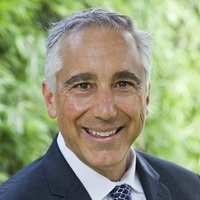Summer Is Made for Sun, Fun … and Estate Planning Conversations
Now is the time to discuss estate planning with your loved ones to ensure the Great Wealth Transfer is efficient, tax-aware and in line with your legacy goals — not Uncle Sam's.


Profit and prosper with the best of Kiplinger's advice on investing, taxes, retirement, personal finance and much more. Delivered daily. Enter your email in the box and click Sign Me Up.
You are now subscribed
Your newsletter sign-up was successful
Want to add more newsletters?

Delivered daily
Kiplinger Today
Profit and prosper with the best of Kiplinger's advice on investing, taxes, retirement, personal finance and much more delivered daily. Smart money moves start here.

Sent five days a week
Kiplinger A Step Ahead
Get practical help to make better financial decisions in your everyday life, from spending to savings on top deals.

Delivered daily
Kiplinger Closing Bell
Get today's biggest financial and investing headlines delivered to your inbox every day the U.S. stock market is open.

Sent twice a week
Kiplinger Adviser Intel
Financial pros across the country share best practices and fresh tactics to preserve and grow your wealth.

Delivered weekly
Kiplinger Tax Tips
Trim your federal and state tax bills with practical tax-planning and tax-cutting strategies.

Sent twice a week
Kiplinger Retirement Tips
Your twice-a-week guide to planning and enjoying a financially secure and richly rewarding retirement

Sent bimonthly.
Kiplinger Adviser Angle
Insights for advisers, wealth managers and other financial professionals.

Sent twice a week
Kiplinger Investing Weekly
Your twice-a-week roundup of promising stocks, funds, companies and industries you should consider, ones you should avoid, and why.

Sent weekly for six weeks
Kiplinger Invest for Retirement
Your step-by-step six-part series on how to invest for retirement, from devising a successful strategy to exactly which investments to choose.
A staggering $84 trillion will switch ownership from now till 2045, according to a report from Cerulli Associates. Though nearly $12 trillion of that will go to charity, the rest will be transferred directly to heirs.
Summer isn’t just a time for sunshine and travel — it’s also when families come together, making it the perfect time for conversations that matter the most.
As your family gathers over the next few months, it creates an opportune time to engage in conversations about estate planning and ensure you, your assets, your family and your legacy are protected.
From just $107.88 $24.99 for Kiplinger Personal Finance
Become a smarter, better informed investor. Subscribe from just $107.88 $24.99, plus get up to 4 Special Issues

Sign up for Kiplinger’s Free Newsletters
Profit and prosper with the best of expert advice on investing, taxes, retirement, personal finance and more - straight to your e-mail.
Profit and prosper with the best of expert advice - straight to your e-mail.
The Kiplinger Building Wealth program handpicks financial advisers and business owners from around the world to share retirement, estate planning and tax strategies to preserve and grow your wealth. These experts, who never pay for inclusion on the site, include professional wealth managers, fiduciary financial planners, CPAs and lawyers. Most of them have certifications including CFP®, ChFC®, IAR, AIF®, CDFA® and more, and their stellar records can be checked through the SEC or FINRA.
Understand what you own and how assets transfer
There is no sense of growing your estate if it will just be eaten up by income taxes, so it’s paramount that you understand what investments you own today and how they transfer to loved ones upon passing.
It’s common to think, “I have a living trust. Everything will be fine.” However, this is not true because not all assets pass through a living trust and can’t be registered in a living trust.
Additionally, not all assets are taxed the same way, so you need to understand not just how they pass on to loved ones but how they will be taxed to them.
Build a thoughtful estate plan
Once you know your investments and understand how they transfer upon passing, it’s essential to create a will to name beneficiaries and guardians for any minor children.
Different states vary on the types of will that are valid, so it’s important to understand the applicable laws.
A complete estate plan includes a living trust, an advance directive for your medical care wishes, a designated power of attorney, a pour-over will and more.
Keep your plan up to date
Estate planning is fluid and dynamic and needs to have eyes on it at all times.
The first thing you should do is check to see if your living trust is up to date with the current laws. It makes sense to check in with the person who put together your trust every few years to ensure it’s up to date.
The second step is to gather the statements of your investments that should be in your trust to confirm that they are.
These assets include checking, savings and CD accounts, as well as investment accounts that are not registered in the form of a retirement account, such as an IRA, 401(k), 457 plan, etc.
Assets in retirement, annuity and life insurance accounts are passed down through a beneficiary designation. Periodically check and update these beneficiary designations as needed.
Looking for expert tips to grow and preserve your wealth? Sign up for Building Wealth, our free, twice-weekly newsletter.
Print copies of these financial statements and store them in a safe place. It’s smart to also scan them to your computer so they are saved digitally.
Finally, ensure that other family members know where these documents live in case they need access.
Re-evaluate and discuss
As life circumstances change, make time to update your estate plan and discuss the updates with your loved ones.
Honest conversations with loved ones about the elections you made help to ensure a smooth transition. Losing a loved one is difficult, and conversations ahead of time can help limit any conflict between beneficiaries regarding assets.
Conclusion
These steps ensure that your assets are passed on to loved ones in an efficient and protected manner.
While you gather with loved ones this summer, use that time to have important planning conversations. The most important part of an estate plan is getting started — and there’s no better time than now.
Related Content
- How (and Why) to Talk Money at Your Family Dinner Table
- 18 States With Scary Estate and Inheritance Taxes
- What Is a Good Inheritance? Six Great Assets to Inherit
- Give Now or Leave an Inheritance? How to Balance the Options
- Ten Common Estate Planning Mistakes
Profit and prosper with the best of Kiplinger's advice on investing, taxes, retirement, personal finance and much more. Delivered daily. Enter your email in the box and click Sign Me Up.

Eric is a prominent figure in the Long Beach community, where he has made significant contributions both professionally and philanthropically. As the President and Founder of Octave Wealth Management, Eric has steered his financial planning practice to new heights since its rebranding and expansion in 2024. His career, which began in 1997, has been marked by a steadfast dedication to excellence, reflected in the success and growth of his practice.
-
 Quiz: Do You Know How to Avoid the "Medigap Trap?"
Quiz: Do You Know How to Avoid the "Medigap Trap?"Quiz Test your basic knowledge of the "Medigap Trap" in our quick quiz.
-
 5 Top Tax-Efficient Mutual Funds for Smarter Investing
5 Top Tax-Efficient Mutual Funds for Smarter InvestingMutual funds are many things, but "tax-friendly" usually isn't one of them. These are the exceptions.
-
 AI Sparks Existential Crisis for Software Stocks
AI Sparks Existential Crisis for Software StocksThe Kiplinger Letter Fears that SaaS subscription software could be rendered obsolete by artificial intelligence make investors jittery.
-
 Quiz: Do You Know How to Avoid the 'Medigap Trap?'
Quiz: Do You Know How to Avoid the 'Medigap Trap?'Quiz Test your basic knowledge of the "Medigap Trap" in our quick quiz.
-
 5 Top Tax-Efficient Mutual Funds for Smarter Investing
5 Top Tax-Efficient Mutual Funds for Smarter InvestingMutual funds are many things, but "tax-friendly" usually isn't one of them. These are the exceptions.
-
 Why Invest In Mutual Funds When ETFs Exist?
Why Invest In Mutual Funds When ETFs Exist?Exchange-traded funds are cheaper, more tax-efficient and more flexible. But don't put mutual funds out to pasture quite yet.
-
 We Retired at 62 With $6.1 Million. My Wife Wants to Make Large Donations, but I Want to Travel and Buy a Lake House.
We Retired at 62 With $6.1 Million. My Wife Wants to Make Large Donations, but I Want to Travel and Buy a Lake House.We are 62 and finally retired after decades of hard work. I see the lakehouse as an investment in our happiness.
-
 Social Security Break-Even Math Is Helpful, But Don't Let It Dictate When You'll File
Social Security Break-Even Math Is Helpful, But Don't Let It Dictate When You'll FileYour Social Security break-even age tells you how long you'd need to live for delaying to pay off, but shouldn't be the sole basis for deciding when to claim.
-
 I'm an Opportunity Zone Pro: This Is How to Deliver Roth-Like Tax-Free Growth (Without Contribution Limits)
I'm an Opportunity Zone Pro: This Is How to Deliver Roth-Like Tax-Free Growth (Without Contribution Limits)Investors who combine Roth IRAs, the gold standard of tax-free savings, with qualified opportunity funds could enjoy decades of tax-free growth.
-
 One of the Most Powerful Wealth-Building Moves a Woman Can Make: A Midcareer Pivot
One of the Most Powerful Wealth-Building Moves a Woman Can Make: A Midcareer PivotIf it feels like you can't sustain what you're doing for the next 20 years, it's time for an honest look at what's draining you and what energizes you.
-
 Stocks Make More Big Up and Down Moves: Stock Market Today
Stocks Make More Big Up and Down Moves: Stock Market TodayThe impact of revolutionary technology has replaced world-changing trade policy as the major variable for markets, with mixed results for sectors and stocks.